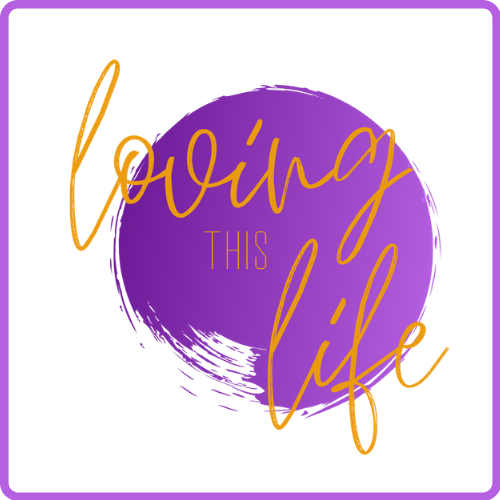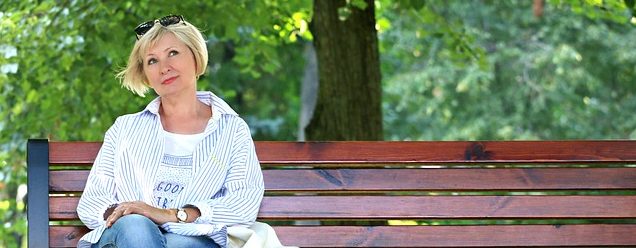I want to tell you a little of my journey of living with Fibromyalgia.
It’s been helpful for me when I hear others’ journeys and how they’ve managed in the process.
My hope is that telling my story might help others when they find themselves diagnosed with this chronic illness and are trying to make sense of their life.
Not long after I had my second child, I began feeling exhausted all the time. It’s an understatement to say that I was overwhelmed with the weakness I felt all the time in my arms and legs especially.
My neck and shoulders felt like they “locked up” – they were tense every day.
(I often said at this time, that it felt like I was living with the flu, concentrated in my neck and shoulders.) I began to understand what the expression “brain fog” meant, as I found it almost impossible to think clearly.
Up until this time I had led a very active life. I loved my work and tended to immerse myself in it. I loved my little family and enjoyed our time together. I also had a great group of friends – most of whom were Mums too.
The only way I know how to describe the change in me was it was like I’d hit a brick wall and my body said “enough”.
I couldn’t do much at all – which isn’t easy when you have two little kids to care for.
It took around two years of medical appointments to fina It took around two years of medical appointments to finally be diagnosed with Fibromyalgia. I underwent numerous tests and saw a variety of specialists, all of whom responded differently to my symptoms.
Some specialists seemed very sceptical and not overly sympathetic to what I was feeling.
I will always remember one specialist though, who said “I’m sorry, but there isn’t any diagnosis that I can give you. I’m sorry because I know that doesn’t help you find answers for what you’re feeling.”
His response was like a breath of fresh air on a hot summer’s day.
Finally, someone who believed me when I described what I was feeling – the overwhelming fatigue, aching muscles and debilitating brain fog. His apology for not being able to help me meant the world to me. In my experience at that time, his attitude was rare.
Eventually, my GP tested my pressure points. I can only say I almost went through the roof when she touched some of them.
It was clear I had Fibromyalgia.
My GP sent me off to a Pain Specialist, who didn’t do a whole lot, but she did say a couple of things that were helpful.
Firstly, she said
“The good news is that Fibromyalgia won’t kill you, but the bad news is that you’ll have it for the rest of your life!”
Next, she explained how to understand Fibromyalgia better. She said to think of a continuum, with pain at one end and fatigue at the other end. For some people, their Fibromyalgia symptoms are at the pain end and for others it’s down the other end as they experience more fatigue than pain. For others again, it’s a mixture of both.

It was a helpful illustration for me, as I would often find the fatigue more debilitating than the pain in the early years. My muscles ached all the time, but I found I could still do things in my daily routine. Whereas the fatigue was so overwhelming that some days I found it difficult to do anything at all.
All of the above happened 20 years ago. I’ve lived with the symptoms of Fibromyalgia every day since then.
Instead of telling the whole story of my life (and putting you to sleep in the process) here are the key things that I’ve learned through living my life with this chronic illness:
- Living with an illness like this is incredibly hard work. Just trying to work out each day what you think you can manage to do, can be exhausting. You need to learn to be gentle on yourself.
- It’s good to have some structured and unstructured days in your week. Sometimes it is harder to work out what you think you can do, than it is to just get up and go to work or take the kids to an appointment – or whatever, where there’s a deadline. It’s great though to have days where you can just do whatever you have to do in your own time.
- I’ve learnt over time to make space in my life for the things that are important to me and my family – even it means I’m going to have a few “down” days as a result. I know for me, that it’s the “second day after” I do something that the fatigue and aching get worse. I need to plan for this in what I do.
- On the days I work (3 days a week); I don’t do anything on those evenings. Most nights I’m in bed by 7.30pm. I don’t sleep then, but I relax and allow my body to unwind.
- Learning what is important and what isn’t is a journey that takes time! Here are a few that I’ve learned…
- I don’t fuss about having a spotless house. It’s tidy and mostly clean.
- Spending time with my husband, kids and broader family is important and worth making time for regardless of how I’m feeling.
- Taking my eyes off myself and focusing on others is very important for me. Otherwise I get totally self-absorbed and that’s not living to me.
- Listen to those you trust about what they see of your life. I know I can’t see myself clearly. Often my husband will say something about how I’ve been, and I won’t have been aware of it. eg. he sometimes tells me I’m sighing a lot – a sure sign that I’m frustrated.
- It’s important to have someone to talk to about how you’re travelling. Sometimes it’s better to have someone that’s outside of your family. A counsellor or trusted friend that you can share what life is really like for you and know that they will listen and help as appropriate.
- It’s difficult living with an illness that no one else can see. I’ve heard others say they’d find it easier if they had a broken leg or something tangible that others can see. This is certainly an issue for everyone with Fibromyalgia. We need to learn when to say what we’re feeling and when not to say anything.
More often or not I don’t tell people that I have Fibromyalgia unless I really need to. I don’t like feeling that people have put me in a box constructed of what they know of Fibromyalgia. It’s easy to spot those who I’m safe to talk to about it – they’re usually people who have similar conditions.
The list of things I’ve learnt over the past twenty years goes on and on.
There are still frustrating days when I just wish I could do more than I presently can. For example:
- Play tennis (my hands are too weak);
- go on long hikes;
- travel overseas and visit lots of different places;
- stay up late;
- not have to manage my time based on how I’m feeling.
But having said all that, I have a life I love and, as I face each day with a positive attitude, accepting my limitations, I find I enjoy learning new things about myself, others and this world around me.
One of the things that I am super passionate about is helping others who battle with Fibromyalgia and other debilitating chronic illnesses so they can live a life that they love.
If you’d like to sign up for my free e-Booklet on Fibromyalgia, press the other link below.

